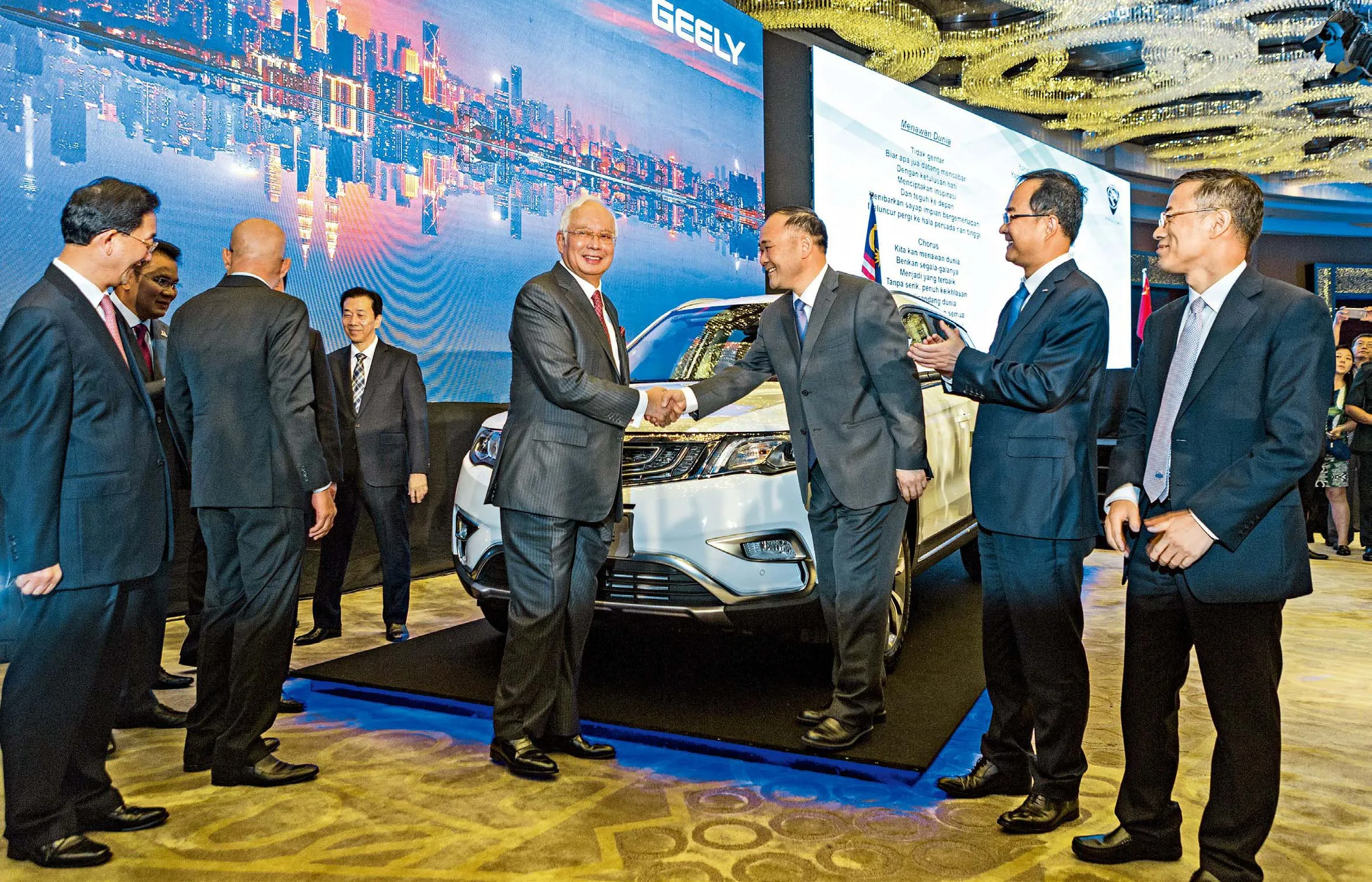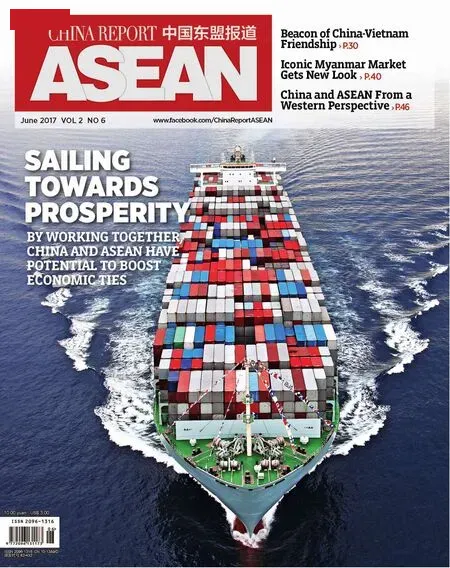China’s Geely Buys Stake in Malaysian Automaker Proton
By Yu Yichun
China’s Geely Buys Stake in Malaysian Automaker Proton
By Yu Yichun
Malaysia’s largest automaker gains a Chinese partner on its quest to return to profitability
As Southeast Asia's first automaker, Proton has decided to partner with China’s Zhejiang Geely Holding Group, hoping to revitalize the iconic Malaysian brand and enhance its international competitiveness. The deal will also ease the Chinese carmaker's initial push into Southeast Asia.
Looking for a Way out
Proton is a car brand that almost all Malaysians are familiar with. Headquartered in Shah Alam, the state capital of Selangor, Malaysia, about 30 kilometers to the southwest of the country’s capital, Kuala Lumpur, Proton sells products not just in Malaysia, but also in 27 other countries and regions around the world. Having operated since the early 1980’s, the brand is often regarded as a source of national pride and an emblem of Malaysia’s industrialization and economic growth.
In 1979, the concept of a National Car Project was first proposed by then Malaysian Deputy Prime Minister Mahathir Mohamad. The project was approved by the Malaysian Cabinet in 1982, leading to the founding of Proton the following year. In 1985, the Proton Saga was launched as the company’s first model and exported not only to neighboring countries but also to the UK. More than 1.2 million Saga were sold before its production was halted in 2008, making it the best selling Malaysian car ever.
In recent years, however, Proton’s sales have declined sharply due to problems such as a growing number of imported cars in Malaysia and quality issues with its old models. With 72,300 units sold last year, its domestic market share dropped from 74 percent at its peak in 1993 to less than 15 percent in 2016. In addition to shrinking market share, limited domestic market size in Malaysia also hurts Proton, as it hinders the development of the auto industry as a whole. Confined economic scale makes it difficult for Proton to recover high research and development costs, resulting in years of loss.
Thirty-four years after its establishment, struggling Proton chose Geely as its strategic partner in the hope of restoring its former glory. On April 24, 2017, Geely announced in Kuala Lumpur that it would buy 49.9 percent of Proton from its parent company, conglomerate DRB-HICOM Berhad. Neither Geely nor DRBHICOM disclosed the value of the deal, but they said that further negotiations would be held based on the key agreements they have reached, and a definitive agreement is expected to be signed by July. The two sides will embark on extensive and indepth cooperation after Chinese and Malaysian government authorities approve their deal.
Enhancing Brand Value and Credibility
Thanks to their affordability, Proton cars are often the primary choice for many Malaysian families when they buy their first car. Mohamad Zul Iskandar and his family are loyal Proton enthusiasts. “We have three Proton cars, a Saga bought in 1989, a Perdana in 1995 and a Persona in 2007,” He said. “I have deep emotional attachment to this brand.”
New Proton cars were once in great demand, and at one point customers were even required to make a down payment and wait more than six months to drive their new car home.

On June 23, a definitive agreement for the purchase of 49.9 percent of Proton by China's Geely was signed in Kuala Lumpur, the capital of Malaysia.

“The greatest expectation for Proton’s partnership with Geely is that it gives Proton a real chance in making a comeback in the domestic market, as well as better performance in ASEAN and other regions,” said Malaysia's Second Finance Minister Johari Abdul Ghani. Furthermore, the deal is expected to enable Proton to tap into Geely’s rich experience in value chain management, from which the entire auto industry of Malaysia will benefit. Proton currently has about 10,000 employees, and its domestic suppliers have about 50,000 staff members.
When the news was released, many overseas automakers showed interest in Proton. Geely stood out from 23 interested parties and ultimately became Proton’s strategic partner.
“Proton is Malaysia’s first national car brand, and this deal will be the catalyst needed to elevate a brand that Malaysians resonate with,” said Syed Faisal Albar, DRB-HICOM Group Managing Director. The deal will also offer Proton access to Geely’s vast range of platforms and cutting-edge technologies, and will enable Proton to expand production scale and enhance its brand value and credibility, as well as develop the right-handdrive markets in Malaysia and other parts of Southeast Asia.
ASEAN Beachhead
“Both sides will benefit from this deal, as Proton will make a comeback and Geely will gain access to right-hand-drive markets,” said Mohamad Shanaz Noor Azam, an analyst with Malaysia's CIMB Bank.
The right-hand-drive markets and the Malaysian production line are two main advantages that Geely is buying into. With the Proton deal, it can quickly develop a beachhead in the ASEAN Free Trade Area with a population of more than 600 million.
Geely Chief Financial Officer and Vice President Li Donghui noted that as a well-known national brand in Malaysia, Proton has established a healthy enterprise ecosystem and research and development facilities.
“Compared to our competitors, we enjoy a unique advantage by introducing Geely’s products and technological know-how to Malaysia and the ASEAN market while making full use of Proton’s existing manufacturing and research and development presence in the region,” Li said.
Azam believes that Proton has to reach annual production of 15,000-20,000 cars if it wants to return to profitability. According to Li, if the deal works, their initial target is to increase Proton’s sales in Malaysia and the overall ASEAN market to 50,000 units a year in 8-10 years.
Yao Jinlong, a professor of economics at the Business School of Malaysia’s Sunway University, suggested that with Malaysia as its regional base, Geely can tap into the ASEAN Economic Community market while increasing the influence of Proton in the region. Madani Sahari, CEO of the Malaysia Automotive Institute, believes that the deal would achieve win-win results, with Proton gaining access to more advanced technologies and a growing market in Southeast Asia. “The two existing car brands in Malaysia see a domestic market share of nearly 50 percent, so we are more focused on the development of ASEAN and other regional markets,” he said. “I believe that Geely’s advantages in vehicle technology and platforms will ensure the revitalization of Proton.”
s
a total of 13.9 billion ringgit (US$3.2 billion) in government aid since 1983. In April last year, in an effort to revive the Proton brand and make it an internationally competitive carmaker, the Malaysian government provided another 1.5 billion ringgit (US$364.08 million) in low-interest loans on the condition that Proton launch a restructuring plan, develop a market expansion plan and find a foreign strategic partner.
- China Report Asean的其它文章
- FREIGHT TRAIN ROUTE LINKS VIETNAM, SOUTHWEST CHINA
- The CPC Grows Together with the Chinese People
- South and Southeast Asia Commodity Expo and Investment Fair Held
- COOPERATION WITH SINGAPORE GROWS
- Xi's Kazakhstan Trip Cements Broader Cooperation
- THAI PM SET TO SPEED UP THAILAND-CHINA RAILWAY PROJECT

